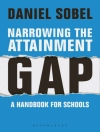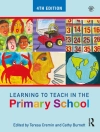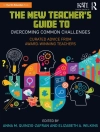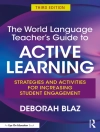Victimology: A Text/Reader, Second Edition, engages students with the most current, cutting-edge articles published in the field of victimology as well as connects them to the basic concepts. Unlike existing victimology textbooks, this unique combination of published articles with original material presented in a mini-chapter format puts each topic into context so students can develop a better understanding of the extent, causes, and responses to victimization. Students will build a foundation in the history and development of the field of victimology, will be shown the extent to which people are victimized and why, will learn the specific types of victimization, and will witness the interaction between the criminal justice system and victims today.
قائمة المحتويات
Section 1. Introduction to Victimology
What Is Victimology?
The History of Victimology: Before the Victims’ Rights Movement
The Role of the Victim in Crime: Victim Precipitation, Victim Facilitation, and Victim Provocation
The History of Victimology: The Victims’ Rights Movement
Contributions of the Victims’ Rights Movement
Victimology Today
Section 2. Extent, Theories, and Factors of Victimization
Measuring Victimization
Theories and Explanations of Victimization
Reading 1: Specifying the Influence of Family and Peers on Violent Victimization: Extending Routine Activities and Lifestyles Theories by Christopher J. Shcreck and Bonnie S. Fisher
Reading 2: An Investigation of Neighborhood Disadvantage, Low Self-Control, and Violent Victimization Among Youth by Chris L. Gibson
Section. 3 Consequences of Victimization
Physical Injury
Mental Health Consequences and Costs
Economic Costs
System Costs
Vicarious Victimization
Reporting
Fear of Crime
Reading 3: Victimization, posttraumatic stress disorder symptomatology, and later nonsuicidal self-harm in a birth cohort by Shyamala Nada-Raja and Keren Skegg
Reading 4: The economic costs of partner violence and the cost-benefit of civil protective orders T K Logan, Robert Walker, and William Hoyt
Section 4. Recurring Victimization
Types of Recurring Victimization
Extent of Recurring Victimization
Characteristics of Recurring Victimization
Risk Factors for Recurring Victimization
Theoretical Explanations of Recurring Victimization
Consequences of Recurring Victimization
Responses to Recurring Victimization
Reading 5: The Violent and Sexual Victimization of College Women: Is Repeat Victimization a Problem? by Leah E. Daigle, Bonnie S. Fisher, and Francis T. Cullen
Reading 6: A networked boost: Burglary co-offending and repeat victimization using a network approach by Brendan Lantz and R. Barry Ruback
Section 5. Victims’ Rights and Remedies
Victims’ Rights
Financial Remedy
Remedies and Rights in Court
Reading 7: Victim Rights and New Remedies: Finally Getting Victims Their Due by Robert C. Davis and Carrie Mulford
Reading 8: Delivering a victim impact statement: Emotionally effective or counter-productive? by Kim ME Lens, Antony Pemberton, Karen Brans, Johan Braeken, Stefan Bogaerts, and Esmah Lahlah
Section 6. Homicide Victimization – Contributed by Lisa Muftic
Defining Homicide Victimization
Measurement and Extent of Homicide Victimization
Risk Factors for and Characteristics of Homicide Victimization
Different Types of Homicide Victimization
Victim Precipitation
Indirect (Secondary) Victimization
Legal and Community Responses to Homicide Victimization
Reading 9: Co-victims of homicide: A systematic review of the literature by Jennifer Connolly and Ronit Gordon
Reading 10: Victim lifestyle as a correlate of homicide clearance by Jason Rydberg and Jesenia M. Pizarro
Section 7. Sexual Victimization
What Is Sexual Victimization?
Measurement and Extent of Sexual Victimization
Risk Factors for and Characteristics of Sexual Victimization
Responses to Sexual Victimization
Consequences of Sexual Victimization
Special Case: Sexual Victimization of Males
Legal and Criminal Justice Responses to Sexual Victimization
Prevention and Intervention
Reading 11: Alcohol expectancy, drinking behavior, and sexual victimization among female and male college students by Kimberly A. Tyler, Rachel M. Schmitz, and Scott A. Adams
Reading 12: The Effectiveness of Sexual Assault Nurse Examiner (SANE) Programs: A Review of Psychological, Medical, Legal, and Community Outcomes by cca Campbell, Debra Patterson, and Lauren F. Lichty
Section 8. Intimate Partner Violence
Defining Intimate Partner Violence and Abuse
Measurement and Extent
Who Is Victimized?
Risk Factors and Theories for Intimate Partner Violence
Consequences of Intimate Partner Violence
Why Abusive Relationships Continue
Criminal Justice System Responses to Intimate Partner Violence
Legal and Community Responses
Reading 13: Conflict and Control: Gender Symmetry and Asymmetry in Domestic Violence by Michael Johnson
Reading 14: Intimate partner violence and the victim-offender overlap by Marie Skubak Tillyer and Emily M. Wright
Reading 15: Voices of strength and resistance: A contextual and longitudinal analysis of women’s responses to battering by Jacquelyn Campbell, Linda Rose, Joan Kub, and Daphne Nedd
Section 9. Victimization at the Beginning and End of Life: Child and Elder Abuse
Child Maltreatment
Elder Maltreatment
Reading 16: Child abuse and neglect, developmental role attainment, and adult arrests by Maureen A. Allwood and Cathy Spatz Widom
Reading 17: The Epidemiology of Violence Against the Elderly: Implications for Primary and Secondary Prevention by Ronet Bachman and Michelle L. Meloy
Section 10. Victimization at School and Work
Victimization at School
Victimization at School: Grades K–12
Victimization at School: College
Victimization at Work
Reading 18: Traditional Bullying, Cyber Bullying, and Deviance: A General Strain Theory Approach by Carter Hay, Ryan Meldrum, and Karen Mann
Reading 19: A Multidimensional Examination of Campus Safety: Victimization, Perceptions of Danger, Worry About Crime, and Precautionary Behavior Among College Women in the Post-Clery Era by Pamela Wilcox, Carol E. Jordan, and Adam J. Pritchard
Section 11. Property and Identity Theft Victimization
Property Victimization
Theft
Motor Vehicle Theft
Household Burglary
Identity Theft
Reading 20: Linking Burglary and Target Hardening at the Property Level: New Insights Into Victimization and Burglary Protection by Alex Hirschfield, Andrew Newton, and Michelle Rogerson
Reading 21: Online routines and identify theft victimization: Further expanding routine activity theory beyond direct-contact offenses by Bradford W. Reyns
Section 12. Victimization of Special Populations
Victimization of Persons With Disabilities
Who Is Victimized?
Patterns of Victimization
Risk Factors for Victimization for Persons With Disabilities
Responses to Victims With Disabilities
Victimization of Persons With Mental Illness
Victimization of the Incarcerated
Reading 22: Partner Violence Against Women with Disabilities: Prevalence, Risk, and Explanations by Douglas A. Brownridge
Reading 23: Mental Disorder and Violent Victimization: The Mediating Role of Involvement in Conflicted Social Relationships by Eric Silver
Reading 24: Examining the effects of witnessing victimization while incarcerated on offender reentry by Jane C. Daquin, Leah E. Daigle, and Shelley Johnson Listwan
Section 13. Victimology from a Comparative Perspective – Contributed by Lisa Muftic
Victimology Across the Globe
Measurement and Extent of Victimization Across the Globe
Justice System Responses to Victimization
Victims’ Rights and Assistance Programs
Reading 25: The International Crime Victims Survey: A retrospective by John van Kesteren, Jan van Dijk, and Pat Mayhew
Reading 26: A systematic review of prevalence and risk factors for elder abuse in Asia by Elsie Yan, Ko-Ling Chan, and Agnes Tiwari
Section 14. Contemporary Issues in Victimology: Victims of Hate Crimes, Human Trafficking, and Terrorism
Victims of Hate Crimes
Victims of Human Trafficking
Victims of Terrorism
Reading 27: Hate Crimes and Stigma-Related Experiences Among Sexual Minority Adults in the United States: Prevalence Estimates From a National Probability Sample by Gregory M. Herek
Reading 28: Challenges to identifying and prosecuting sex trafficking cases in the Midwest United States by Andrea J. Nichols and Erin C. Heil
Reading 29: Does watching the news affect fear of terrorism? The importance of media exposure on terrorism fear by Ashley Marie Nellis and Joanne Savage
عن المؤلف
Leah E. Daigle is professor in the Department of Criminal Justice and Criminology in the Andrew Young School of Policy Studies at Georgia State University. She received her Ph D in criminal justice from the University of Cincinnati in 2005. Her most recent research is centered on repeat sexual victimization of college women and responses women use during and after being sexually victimized. Her other research interests include the development and continuation of offending and victimization across the life course. She is author of Victimology: A Text/Reader (2nd ed.), Victimology: The Essentials (2nd ed.), coauthor of Criminals in the Making: Criminality Across the Life Course, Victimology, and Unsafe in the Ivory Tower: The Sexual Victimization of College Women, which was awarded the 2011 Outstanding Book Award by the Academy of Criminal Justice Sciences. She has also published numerous peer-reviewed articles that have appeared in outlets such as Justice Quarterly, Journal of Quantitative Criminology, Journal of Interpersonal Violence, and Victims and Offenders.












